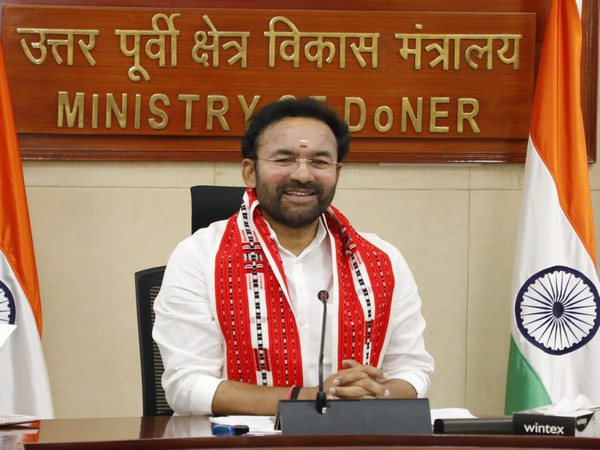Panaji: The number of foreign tourists who arrived in India this year during January-April is 166 per cent more than the figures for the corresponding period in 2022, Union Tourism Minister G Kishan Reddy said on Tuesday.
He said this in his address at the inaugural session of the fourth G20 Tourism Working Group (TWG) meeting here. Reddy also said that after the COVID-19 pandemic, foreign tourist arrivals in India have increased. “The number of foreign tourists who arrived in India this year during January-April is 166 per cent higher than the figures for the corresponding period in 2022,” Reddy said. “India’s inbound travel is expected to reach to pre-pandemic level in 2023,” he asserted.
Later at a press conference here, Reddy said it was a “matter of happiness” that the concluding meeting of the TWG is taking place in Goa.
“India is hosting over 200 G20 meetings at 55 locations across the country. It is happening with ‘janbhagidari’ (people’s cooperation). And, tourism sector is benefitting the most from these meetings,” he said.
In keeping with the philosophy of ‘Atithi Devo Bhav’, India is hosting G20 delegates with great warmth.
“Each of these delegates… we want them to go back as ambassadors of India,” the minister said.
Earlier interacting with members of a Yuva Tourism Club after the opening session here, Reddy said the G20 meetings are taking place across the country “akin to a festival”.
During the TWG meeting on Tuesday, sustainable tourism, climate change, among other subjects were discussed.
The fourth and the final meeting is discussing various challenges that tourism sector is facing globally.
Hailing India as the “mother of democracy” and ancient land of spirituality, Union minister Reddy urged the global community to work together to build a more sustainable, inclusive and resilient tourism sector.
India is currently chairing the G20, and “mother of democracy” and “Vasudhaiva Kutumbakam”, are also one of the key taglines used by the central government in its posters and other visuals means of comunication on it.
The Union minister also said that currently the Indian government has two priorities: sustainable infrastructure creation, to cater to the growing needs of the tourists, and raising awareness among the tourists, for responsible consumption and adoption of an environmentally conscious lifestyle and through the launch of the “G20 Tourism and SDG Dashboard, a legacy has been created”.
The dashboard being developed, shall promote policies and initiatives by the G20 countries, and guest countries in building a more sustainable, inclusive, and resilient sector, he said.
A thematic discussion on ‘Making India a Hub for Cruise Tourism’ was also organised in partnership with Confederation of Indian Industry (CII) was also held on Tuesday during the event.
At the end of the fourth Tourism Working Group Meeting and the G20 Tourism Ministerial Meeting, a Goa Roadmap and Action Plan and a ministerial communique endorsing the roadmap will be issued.
From the last three Tourism Working Group meetings, “insightful discussions, thought-provoking and positive decisions” have emerged which will be deliberated upon in the fourth and the final meeting in Goa, the minister said.
Reddy said the outcomes of the two meetings, aim to lend support towards building a more sustainable, inclusive and resilient tourism sector.
The Roadmap and the communique are in line with achieving the Sustainable Development Goals of 2030.
“Friends, let us work together in bridging the gap between public and private leaders and building a more sustainable, inclusive and resilient tourism sector in future,” he said.
Tourism Ministry officials reiterated that these two documents will be key deliverables after the Goa meet.
“At the end of our working group meeting and the ministerial meeting, we are going to declare a Goa Roadmap and Action Plan for tourism as a vehicle for achieving sustainable development goals (SDGs),” a senior official said. Under India’s G20 Tourism Track, the TWG is working on five inter-connected priority areas — green tourism, digitisation, skills, tourism MSMEs and destination. These priorities are key building blocks for accelerating the transition of the tourism sector and achieve the targets for 2030 SDGs.
Also, there will be a “ministerial communique” that will be released at the end of the tourism working group and other deliberations which will endorse the Goa roadmap.
The first Tourism Working Group Meeting of the G20 was held at Runn of Kutch in Gujarat followed by the second one at Siliguri and Darjeeling in West Bengal, and the third one was hosted in Srinagar in Jammu and Kashmir.







